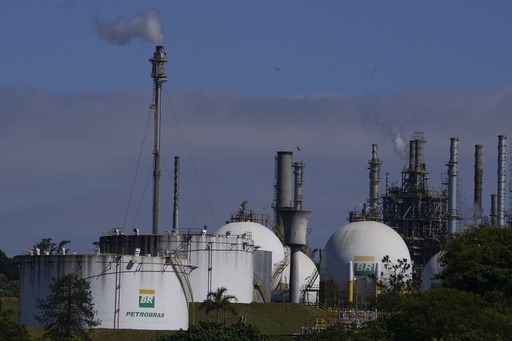
BRASILIA, Brazil — On Tuesday, the Brazilian government granted approval for the country’s entry into OPEC+, a coalition of leading oil-exporting nations. This development highlights Brazil’s transformation into a significant player in the oil sector, just months before it is set to host the United Nations’ annual climate conference.
The approval from the National Council for Energy Policy followed an official invitation received in 2023. OPEC+ comprises the original 12 OPEC members, which was established to manage oil production and stabilize global markets, along with 10 additional key oil-producing countries, coordinated by Russia, the member with the highest output.
Brazil’s involvement in OPEC+ will not impose any mandatory obligations such as production reductions. According to Mines and Energy Minister Alexandre Silveira, the organization serves primarily as “a forum for discussing strategies among oil-producing countries,” and he emphasized that Brazil should be proud of its oil production. He advocated that the country needs to grow economically and generate jobs through this sector.
Although President Luiz Inácio Lula da Silva has initiated his third term with a focus on environmental protection and reducing Amazon rainforest deforestation, he contends that revenues from oil can support Brazil’s transition towards renewable energy. In recent weeks, he has urged the country’s environmental authorities to sanction exploratory drilling activities near the Amazon River’s mouth, an area rich in biodiversity.
With an output of approximately 4.3 million barrels per day, Brazil stands as the seventh-largest oil producer globally, contributing about 4% to the world’s total production, as reported by the U.S. Energy Information Administration. In 2024, crude oil surged to become Brazil’s leading export, making up 13.3% of its foreign sales, overtaking soy.
In comparison, the United States leads the world in oil production with nearly 22 million barrels per day, while Saudi Arabia, the largest OPEC member, produces around 11 million barrels daily.
Lula’s push for increased oil output has drawn criticism as Brazil approaches the UN climate summit known as COP30, scheduled for November. A key focus of these annual discussions has been the importance of reducing fossil fuel consumption, which contributes to greenhouse gas emissions and global warming.
Suely Araújo, a representative of the Climate Observatory—a coalition of 133 environmental and academic organizations—expressed concerns over Brazil’s OPEC involvement. She stated, “Brazil’s entry into any OPEC body is another sign of the government’s step backward.” She further criticized the expansion of fossil fuel exploration, indicating that such actions reflect a reliance on outdated solutions amid pressing contemporary and future challenges.

